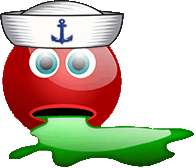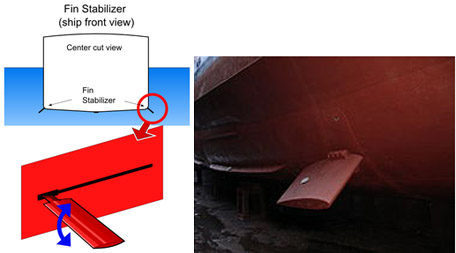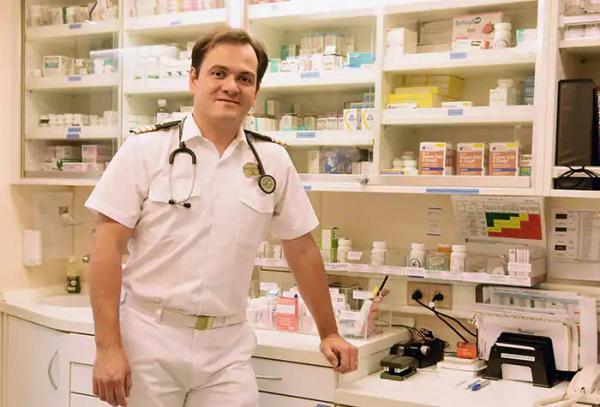Among the most common reasons people give for not taking a cruise vacation is seasickness. While it's true that you're on a moving ship, it's nothing like going on your friend's fishing boat: the movements are slow and much less pronounced. On newer ships you often don't even feel like they're moving. Let's look into why seasickness is rarely an issue and what you can do - from picking the right cabin, to wearing Sea-Bands - so you're prepared just in case you feel a bit too much motion in the ocean.

Why Motion Sickness is Often Not an Issue
First off, quite simply, cruise ships are huge. Even what we call 'smaller' ships now hold many hundreds of people, have ample public spaces, multiple pools, etc. Bigger isn't always better, but when it comes to ships you definitely feel less motion on larger vessels.
Regardless of the size of the ship, another huge factor is technology. Modern cruise ships have multiple sets of stabilizers. Stabilizers are like giant fins that project out from the hull of the ship. When deployed, the cut into the water and prevent much of the side-to-side (rolling) motion that might otherwise be felt in higher seas. Some ships even have 'active fins' for their stabilization system, which coordinate with onboard gyroscopes to adjust their pitch as needed and further reduce roll.

There is one more really simple reason that seasickness is rarely an issue for most guests; it's not fun. Cruise lines want you to enjoy your experience as much as possible, so they work really hard to avoid weather that can increase movement of the ship. This means combining the latest data provided by the weather service, coast guard, other ships, and the corporate offices, as well as the knowledge and experience that comes from cruise ship captains' years at sea.
What to Do If You Do Get Sick
All the technology and weather forecasts in the world matters none if you end up getting seasick. While the majority of people don't, some are nauseated even in a brief car ride or elevator trip, so let's look into what can be done to help.
First, if you are one of those people, be sure you book a cabin on a lower deck toward the middle of the ship. These areas may don't experience as much motion, like sitting on the center of a seesaw instead of at one of the ends. A good travel agent will know to book you in a room that meets this criteria if you let him or her know you're prone to motion sickness.
There are a number of over the counter medications out there. Bonine (Meclazine) and Dramamine (Dimenhydrinate) are two of the most popular. I've heard anecdotally that Bonine doesn't make people as drowsy as Dramamine, but to be honest, I haven't taken either myself.

In addition to medications, ginger has been shown to be a great treatment for motion sickness, even Myth Busters tested it. I personally like this remedy, as it seems reasonably well founded, is inexpensive, and low risk. Green apples also fall into this category (yes, specifically the green ones).
Among the most popular remedies are Sea-Bands. These have been popular for years, and are essentially wrist bands that work based on the science of acupressure. Many cruise passengers swear by Sea-Bands, and we've even known people to wear them for flying, or when nauseated from pregnancy or chemotherapy. They're safe, drug free, and painless. Again, we love anything that is zero risk, and free of side-effects.

Ultimately, talk to your doctor or pharmacist about these solutions and your concerns, don't take medical advice from some cruise nerd on the internet. If you do want to bring something with you just in case, order it ahead of time. Ships carry some of these items on board but their selection is limited and you'll pay dearly for the convenience. Guest services may provide some medication for free (even if the same ship sells it in a gift shop), but again, your selection becomes very limited.
Conclusion
The overwhelming majority of people who cruise don't get seasick. In 2017 over 20 million people cruises - and they weren't all rollercoaster-loving thrill seekers. If you are concerned though, know there are plenty of treatments and remedies out there, more than what I've mentioned here, so talk to your doctor of pharmacist if you've never taken a cruise and want that safety blanket.
Have any seasickness remedies? Questions about motion in the ocean? Comment below!

